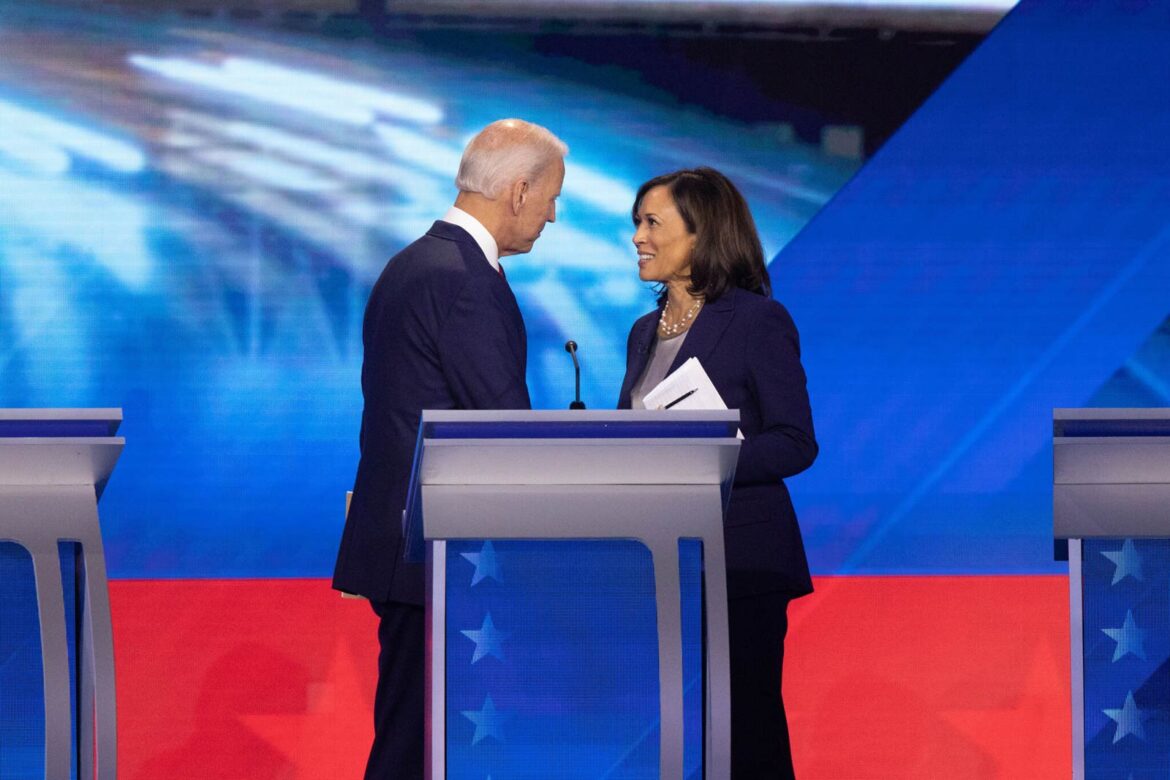President Trump quickly attacked Ms. Harris as Mr. Biden’s vice-presidential pick. Ilhan Omar defeated a well-funded challenger in Minnesota’s House primary. And a Republican QAnon supporter won the Georgia House primary runoff.
Joseph R. Biden Jr., who has selected Senator Kamala Harris of California as his vice-presidential running mate, will appear with her in Delaware on Wednesday afternoon where they will deliver remarks. The two will also take part in a virtual grass-roots fund-raiser Wednesday evening.
As his former rival who sharply criticized him in the Democratic primaries, Ms. Harris emerged as a vocal supporter of Mr. Biden after ending her own campaign and has become a prominent advocate of racial-justice legislation after the death of George Floyd while in police custody in late May.
Ms. Harris, 55, is the first Black woman and the first person of Indian descent to be nominated for national office by a major party, and only the fourth woman in history to be chosen for one of their presidential tickets. She brings to the race a far more vigorous campaign style than Mr. Biden’s, including a gift for capturing moments of raw political electricity on the debate stage and elsewhere, and a personal identity and family story that many find inspiring.
Mr. Biden announced the selection over text message and in a follow-up email to supporters: “Joe Biden here. Big news: I’ve chosen Kamala Harris as my running mate. Together, with you, we’re going to beat Trump.”
After her own presidential bid disintegrated last year, many Democrats regarded Ms. Harris as all but certain to attempt another run for the White House in the future. By choosing her as his political partner, Mr. Biden may well be anointing her as the de facto leader of the party in four or eight years.
Ms. Harris, a pragmatic moderate who spent most of her career as a prosecutor, was seen throughout the vice-presidential search as among the safest choices available to Mr. Biden. She has been a reliable ally of the Democratic establishment, with flexible policy priorities that largely mirror Mr. Biden’s, and her supporters argued that she could reinforce Mr. Biden’s appeal to Black voters and women without stirring particularly vehement opposition on the right or left.
After leaving the presidential race in December, Ms. Harris turned her attention back to the Senate and found new purpose amid a wave of nationwide protests this spring against racism and police brutality. She marched beside protesters and forcefully championed proposals to overhaul policing and make lynching a federal crime, often speaking with a kind of clarity that had eluded her in the presidential primaries on economic issues like health care and taxation.
— Katie Glueck, Alexander Burns, Neil Vigdor and Thomas Kaplan

